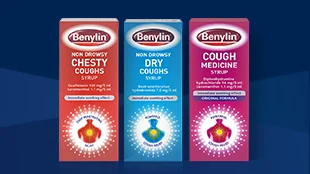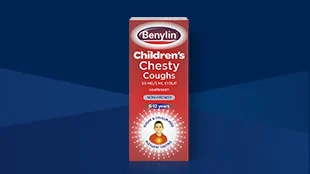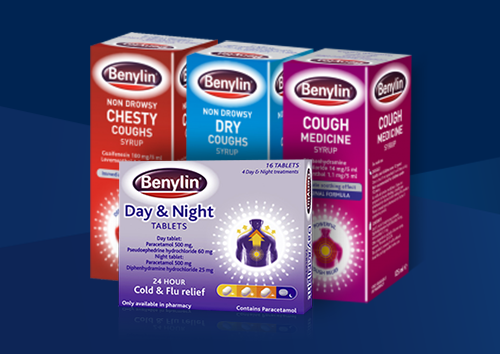Broadly speaking there are two main types of cough:
Productive coughs which produce excess mucus or phlegm, which can be described as 'mucus' or 'chesty‘
Unproductive coughs which produce no mucus or phlegm, which can be described as 'dry' or 'tickly'
Based on consumer perception, these two types can be further differentiated into phlegm and chesty coughs (productive) & dry and tickly coughs (unproductive).
For more details on the different types of cough please read below.
WHEN TO CONTACT YOUR GP:
If your cough does not improve or starts to get worse you should contact your GP. You should also contact your GP when you:
experience breathing difficulties
experience chest pain
cough up blood
have other symptoms that worry you (weight loss, swelling in the neck…)
BENYLIN® is not indicated in chronic coughs.




